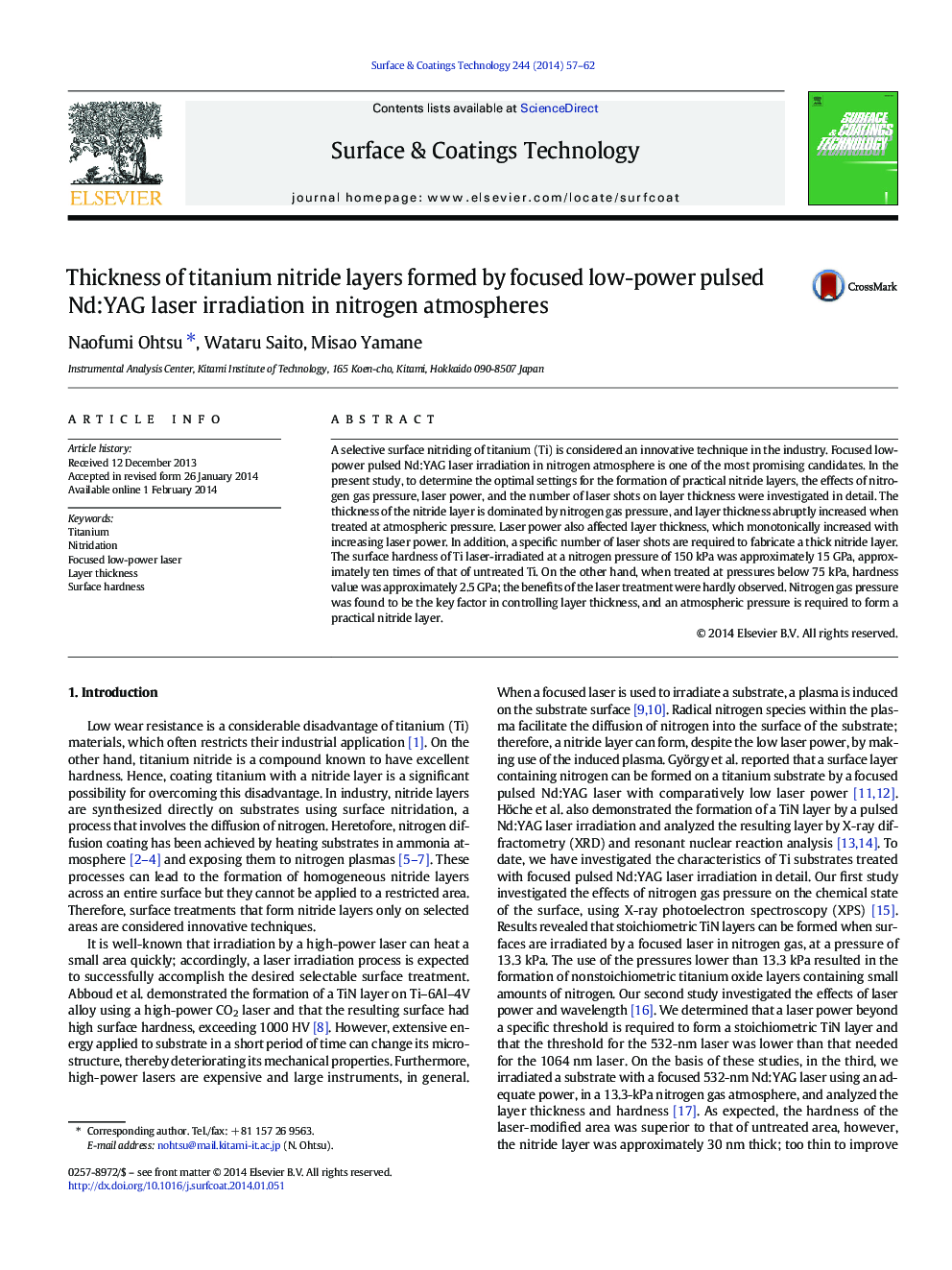| Article ID | Journal | Published Year | Pages | File Type |
|---|---|---|---|---|
| 8027989 | Surface and Coatings Technology | 2014 | 6 Pages |
Abstract
A selective surface nitriding of titanium (Ti) is considered an innovative technique in the industry. Focused low-power pulsed Nd:YAG laser irradiation in nitrogen atmosphere is one of the most promising candidates. In the present study, to determine the optimal settings for the formation of practical nitride layers, the effects of nitrogen gas pressure, laser power, and the number of laser shots on layer thickness were investigated in detail. The thickness of the nitride layer is dominated by nitrogen gas pressure, and layer thickness abruptly increased when treated at atmospheric pressure. Laser power also affected layer thickness, which monotonically increased with increasing laser power. In addition, a specific number of laser shots are required to fabricate a thick nitride layer. The surface hardness of Ti laser-irradiated at a nitrogen pressure of 150Â kPa was approximately 15Â GPa, approximately ten times of that of untreated Ti. On the other hand, when treated at pressures below 75Â kPa, hardness value was approximately 2.5Â GPa; the benefits of the laser treatment were hardly observed. Nitrogen gas pressure was found to be the key factor in controlling layer thickness, and an atmospheric pressure is required to form a practical nitride layer.
Related Topics
Physical Sciences and Engineering
Materials Science
Nanotechnology
Authors
Naofumi Ohtsu, Wataru Saito, Misao Yamane,
